Annual Applied Complexity Network and Board of Trustees Symposium: The Emerging Frontiers of Invention Speakers: Difference between revisions
From Santa Fe Institute Events Wiki
mNo edit summary |
mNo edit summary |
||
| Line 122: | Line 122: | ||
[[File:JacobSilverman.jpg|thumb|200px|[https://www.thebaffler.com/authors/jacob-silverman '''Jacob Silverman''']<br />''' | [[File:JacobSilverman.jpg|thumb|200px|[https://www.thebaffler.com/authors/jacob-silverman '''Jacob Silverman''']<br />'''Journalist and Author''']] | ||
'''Jacob Silverman''' is a freelance journalist and occasional book critic. He’s the author of Terms of Service: Social Media and the Price of Constant Connection, published in 2015 by HarperCollins. His work has appeared in the Los Angeles Times, New York Times, The New Republic, The Washington Post, Slate, and many other publications. He’s a contributing editor for The Baffler and often writes about the politics of tech, privacy, surveillance, and media. He lives in a small New York apartment with his wife, infant child, two cats, and a pile of books. His website is www.jacobsilverman.com. | '''Jacob Silverman''' is a freelance journalist and occasional book critic. He’s the author of Terms of Service: Social Media and the Price of Constant Connection, published in 2015 by HarperCollins. His work has appeared in the Los Angeles Times, New York Times, The New Republic, The Washington Post, Slate, and many other publications. He’s a contributing editor for The Baffler and often writes about the politics of tech, privacy, surveillance, and media. He lives in a small New York apartment with his wife, infant child, two cats, and a pile of books. His website is www.jacobsilverman.com. | ||
<div style="clear: both;"></div> | <div style="clear: both;"></div> | ||
Revision as of 15:45, 1 November 2018
November 9-10, 2018
Santa Fe Institute
Panelists & Moderators Include:
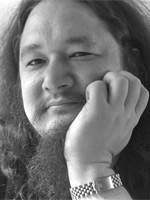
UNM
Dave Ackley is currently an emeritus associate professor of Computer Science at the University of New Mexico, and was previously an External Faculty member at the Santa Fe Institute. Dr. Ackley explores living computation – the principle that living systems and computational systems are ultimately the same things. His research has contributed to neural networks and machine learning, evolutionary algorithms and artificial life, and biological approaches to security, architecture, and models of computation. He is developing robust-first computing on indefinitely scalable computer architectures, moving beyond deterministic execution to expand computational power and achieve a credible basis for computer security.
Dr. Ackley earned his BS in Applied Mathematics from Tufts University, and his MS and PhD in Computer Science from Carnegie Mellon University.
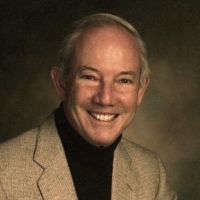
PARC & SFI
Brian Arthur is External Professor at the Santa Fe Institute, and Visiting Researcher in the Systems Sciences Lab at PARC (formerly Xerox Parc) in Palo Alto. Arthur pioneered the modern study of positive feedbacks or increasing returns in the economy--in particular their role in magnifying small, random events in the economy and locking in dominant players. This work has gone on to become the basis of our understanding of the high-tech economy. In 2009 he published the book "The Nature of Technology: What it Is and How it Evolves", an elegant and powerful theory of technology's origins and evolution.
Arthur is also one of the pioneers of the science of complexity. His association with the Santa Fe Institute goes back to 1987. He is a member of SFI's Founders Society, and in 1988 directed its first research program—work that has subsequently become the basis for Complexity Economics. He has served many years on SFI's Science Board and Board of Trustees. From 1983 to 1996 Arthur was Morrison Professor of Economics and Population Studies at Stanford University, at the time of appointment the youngest endowed professor at Stanford.
Brian Arthur is the recipient of the Schumpeter Prize in economics, the Lagrange Prize in complexity science, and two honorary doctorates. He earned his Ph.D. from Berkeley in Operations Research and has other degrees in economics, electrical engineering, and mathematics.
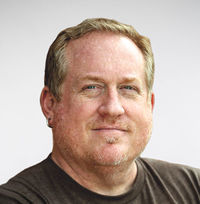
Pacific Light & Hologram
Seamus Blackley, widely known as the “father of the Xbox,” is a high energy physicist and game designer who is currently CEO of venture-backed startup Pacific Light & Hologram.
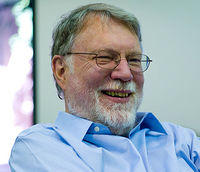
Deloitte Center for the Edge & USC
John Seely Brown (JSB) was the Chief Scientist of Xerox Corp and Director of its famous/infamous Palo Alto Research Center (PARC). Currently he is a visiting scholar and advisor to the Provost at USC where he facilitates collaboration between the Schools for Communication and Media and the Institute for Creative Technologies (ICT). JSB is also currently the Independent Co-Chairman for Deloitte’s Center for the Edge where he pursues research on radical innovation, institutional innovation and a reimagined work environment built on digital culture, ubiquitous computing, and the need for constant learning and adaptability. His personal research interests include digital youth culture, the application of technology to fundamentally rethink the nature of work and institutional architectures in order to enable deep learning across organizational boundaries – in brief, to design for emergence in a constantly changing world. To many whom have worked extensively with him, he is a master integrator and instigator of productive friction. He explores the whitespace between disciplines and builds bridges between disparate organizations and ideas.
JSB is a member of the American Academy of Arts and Sciences, the National Academy of Education, a Fellow of the American Association for Artificial Intelligence. He serves on numerous private and public boards of directors, including Amazon. He has published over 100 papers in scientific journals and 6 books. His most recently is Pragmatic Imagination, co-authored with Ann Pendleton-Jullian. They also have a brand new two volume book called Design Unbound: designing for emergence in a white water world that will be published this fall by MIT Press.
JSB received a BA from Brown University in 1962 in mathematics and physics and a PhD from the University of Michigan in 1970 in computer and communication sciences. He also has received ten honorary degrees.
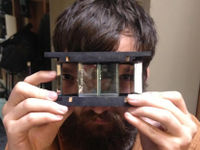
Infinity Light Science
Tristan Duke is an artist and inventor with a background in photography and holography. With a deep interest in the science of optics and visual perception, Duke seeks to invent new forms of visual representation. Since 2008 he has been pioneering the development of hand-drawn holography as a creative medium. In 2014, he invented a new holographic technology to enable the first ever fully 3D holographic vinyl records. His debut release of this technology was for Jack White’s 2014 album Lazaretto –this hologram edition went on to be the best-selling vinyl release in over 20 years. Duke has gone on to create hologram artwork for many record releases including the Star Wars: The Force Awakens soundtrack, for which he received the CLIO Award in 2016. Duke is a founding member (along with artists Lauren Bon and Richard Nielsen) of the Optics Division of the Metabolic Studio and is one of the architects of the team’s Liminal Camera –one of the largest fully functional film cameras in the world.
His work has been exhibited internationally including: Art Villa Garikula, Georgia; MASS MoCA, North Adams; and the Los Angeles County Museum of Art (LACMA). With the Optics Division, exhibitions include: DePaul Art Museum, Chicago, IL; Los Angeles Contemporary Exhibitions (LACE); the Hammer Museum, Los Angeles; Les Rencontres d'Arles, France; The George Eastman Museum, Rochester, NY; and the Smithsonian Hirshhorn, Washington DC.
Duke’s studio, Infinity Light Science, is based in Los Angeles. He is a fellow at the Museum of Jurassic Technology and currently Artist in Residence at the Exploratorium’s Center for Art & Inquiry in San Francisco.
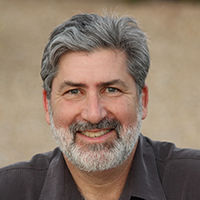
E-Line Media
Alan Gershenfeld is Co-Founder/President of E-Line Media, a developer of games that help players understand and shape the world. Alan has worked on impact game projects with the Gates Foundation, MacArthur Foundation, NSF, USAID, DARPA, White House OSTP, Cook Inlet Tribal Council, Games for Change, Google, Sesame Workshop, MIT Center for Bits and Atoms and ASU Center for Games and Impact.
Prior to E-Line, Alan was member of the executive management team that rebuilt game publisher Activision from bankruptcy into a global industry leader. As SVP of Activision Studios, Alan oversaw titles such as Civilization: Call to Power, Asteroids 3D, Muppet Treasure Island, Spycraft, Pitfall, Zork and Tony Hawk Skateboarding.
Alan has published articles on technology and social impact in Scientific American, Education Week, Huffington Post, Slate, Politico, Marketwatch and Knowledge Quest. Most recently He is co-author, with his two brothers, of Designing Reality: How to Survive and Thrive in the 3rd Digital Revolution. Alan serves on the Board of Directors of FilmAid International and on the Advisory Boards of iCivics and the Joan Ganz Cooney Center For Educational Media and Research (Sesame Workshop). He is also former Chairman of the Board for Games for Change.

Benchmark & SFI
Bill Gurley has spent 18 years as a General Partner at Benchmark, joining in 1999, and is a member of the Board of Trustees at the Santa Fe Institute. Over his venture career, he has invested in and served on the board of such companies as Jamdat (IPO: JMDT, Acq. by EA), GrubHub (IPO: GRUB), Nextdoor, OpenTable (IPO: OPEN, Acq.by Priceline), Stitch Fix, Uber, and Zillow.com (IPO: Z). Before entering the venture capital business, Bill spent four years on Wall Street as an “Institutional Investor” ranked research analyst, including three years at CS First Boston. He also worked as the lead analyst on Amazon's IPO. Prior to his finance career, he worked as a computer engineer at Compaq in Houston. Bill received his BS in computer science from the University of Florida, and an MBA from the University of Texas. He is also a Chartered Financial Analyst. He and his wife are active supporters of the Opportunity Fund and KIPP Bay Area. Bill also maintains a blog on the evolution and economics of high technology businesses called Above the Crowd, and can be followed on Twitter at @bgurley.

Sproutel
Aaron Horowitz is the co-founder and CEO of Sproutel, which is a patient-centered R&D workshop focused on creating technology at the intersection of patient and market needs. Previous to Sproutel, Aaron was a National Board Advisor at Design for America. Aaron received a BS in Mechanical Engineering from Rice University, and a BS in Mechatronics and User Interaction Design from Northwestern University.

Viewpoints Research Institute & UCLA
Alan Kay was born in Springfield, Massachusetts, in 1940. He received a B.S. in mathematics and molecular biology from the University of Colorado at Boulder (1966) and an M.S. (1968) and Ph.D. (1969) from the University of Utah in Computer Science.
Kay is best known for the idea of personal computing, the concept of the laptop computer, and the inventions of the now ubiquitous overlapping-window interface and modern object-oriented programming.
His deep interest in children was the catalyst for these ideas, and it continues to inspire him. Kay was one of the founders of the Xerox Palo Alto Research Center (PARC), in Palo Alto, California, where he led one of the groups that developed ideas into modern workstations (and the forerunner of the Macintosh), the Smalltalk computer language, the overlapping-window interface, desktop publishing, the Ethernet, laser printing, and network "client servers." His "Dynabook" concept prefigured the modern laptop computer by several decades.
Kay has received many awards, including ACM's Software Systems Award and the J-D Warnier Prix d'Informatique. He is a Fellow of the American Academy of Arts and Sciences, the National Academy of Engineering, and the Royal Society of Arts. He has won the ACM Turing Award (2003) and the Kyoto Prize (2004).

Meow Wolf
Caity Kennedy is a co-founder and creative director of Meow Wolf, currently serving as Senior Vice President of Creative Direction. Caity has been in the arts her whole life, and began experimenting with immersive art during college at Rhode Island School of Design. She moved to Santa Fe in 2007, joined Meow Wolf in 2008, and has taken creative leadership roles in most of Meow Wolf’s 30 plus projects. That leadership expanded with her role as Art Director on the House of Eternal Return. Now Caity focuses on the Creative Direction of many projects as well as the building of Meow Wolf’s Creative Direction team, working to build a program of collaborative creative leadership for Meow Wolf, and to bring that platform to other communities.

Meow Wolf
Matt King is a co-founder and creative director of Meow Wolf, currently serving as Senior Vice President of Creative. Matt spent his youth working at YMCA summer camp, teaching outdoor and leadership skills to teens. Matt is a self-taught artist, who discovered immersive installation organically through collaboration with fellow artists. Starting with Meow Wolf’s very first show, Matt has taken creative leadership roles in most of Meow Wolf’s 30 plus projects. Matt was an the fabrication director and an art director on the House of Eternal Return, building the House’s music venue almost single-handedly. Matt now focuses on the Creative Direction of many projects as well as the continued development of the cultural identity of Meow Wolf.
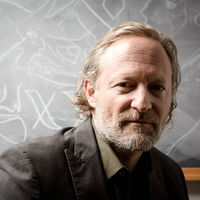
Santa Fe Institute
David Krakauer's research explores the evolution of intelligence on earth. This includes studying the evolution of genetic, neural, linguistic, social and cultural mechanisms supporting memory and information processing, and exploring their shared properties. He served as the founding Director of the Wisconsin Institute for Discovery, the Co-Director of the Center for Complexity and Collective Computation, and Professor of mathematical genetics all at the University of Wisconsin, Madison. David has been a visiting fellow at the Genomics Frontiers Institute at the University of Pennsylvania, a Sage Fellow at the Sage Center for the Study of the Mind at the University of Santa Barbara, a long-term Fellow of the Institute for Advanced Study in Princeton, and visiting Professor of Evolution at Princeton University. In 2012 Dr. Krakauer was included in the Wired Magazine Smart List as one of 50 people "who will change the World.” In 2016 Krakauer was included in Entrepreneur Magazine’s visionary Leaders advancing global research and business.
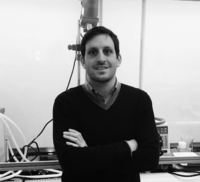
ACTEGA North America Technologies
Ben Lux is the Head of Program Management at ACTEGA North America Technologies, the innovation branch of ACTEGA North America. His group focuses on developing new and sustainable materials, hardware, and additive manufacturing processes for the printing and packaging industries. Ben joined ACTEGA through their acquisition of NuLabel Technologies - a venture backed start-up that developed novel materials to drive waste and cost out of manufacturing processes- in 2017. Prior to joining ACTEGA, Ben was the president, CTO, and co-founder of NuLabel. At NuLabel and ACTEGA, Ben and team have been awarded dozens of patents in the chemistry, hardware, and additive manufacturing spaces.
Ben received an M.Sc. from Brown University's Artificial Organs and Biomaterials Lab in 2010. At Brown, Ben's research focused on polymeric delivery vectors for drug delivery as well as for use in delivery of plant nutrients. Ben is an avid runner and skier and currently resides in Providence, Rhode Island.
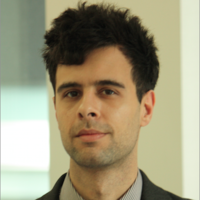
Nesta
Juan Mateos-Garcia is currently the Director of Innovation Mapping at Nesta. Juan leads a team of data scientists, developers, visualisers and innovation experts who use new datasets, analytics methods and visualisation tools to inform innovation policy. He is currently working on EURITO, a 3-year project to develop new innovation indicators for the EU, and a Health Innovation Mapping project with the Robert Woods Johnson Foundation in the US. Before this, he led Arloesiadur, a project to map innovation in Wales, and several high-impact projects about the geography of the creative industries in the UK (most recently, Creative Nation).
Prior to joining Nesta, Juan worked as a researcher at SPRU (Science Policy Research Unit) at the University of Sussex, and CENTRIM at the University of Brighton. Juan has a degree in Economics (with distinction) for Universidad de Salamanca (Spain), and an MSc (with distinction) in Science and Technology Policy from SPRU, University of Sussex.

Journalist and Author
Jacob Silverman is a freelance journalist and occasional book critic. He’s the author of Terms of Service: Social Media and the Price of Constant Connection, published in 2015 by HarperCollins. His work has appeared in the Los Angeles Times, New York Times, The New Republic, The Washington Post, Slate, and many other publications. He’s a contributing editor for The Baffler and often writes about the politics of tech, privacy, surveillance, and media. He lives in a small New York apartment with his wife, infant child, two cats, and a pile of books. His website is www.jacobsilverman.com.

Corvidair
Star Simpson likes to build things, and fly gliders. She is known for having created the first widely-recognized drone delivery project, the TacoCopter. She has recently built the Tethertenna and APSARA autonomous drones, and is working on next-generation drone projects at her startup, Corvidair. She also founded Project Alloy, which brings people from underrepresented backgrounds into tech by facilitating access to attending technical conferences. She splits her time between San Francisco and Iceland.

UC Irvine
Constance Steinkuehler is a Professor of Informatics at the University of California, Irvine where she researches the cognitive and social aspects of esports and multiplayer online videogames. Constance currently chairs the Annual Esports Conference at UCI and the UCI Esports Program Task Force for Diversity and Inclusion. She is the founder and former President of the Higher Education Video Games Alliance and formerly served as Senior Policy Analyst, advising on games and digital media, under the Obama administration in the White House Office of Science and Technology Policy.

Inevitable Ventures
D.A. Wallach is best known as a recording artist and songwriter who Kanye West and Pharrell Williams discovered while he was an undergraduate at Harvard College. He has been featured in GQ, Rolling Stone, Vogue, and numerous other publications, and has performed on TV Shows including Jimmy Kimmel Live and Late Night with Jimmy Fallon. His solo debut for Capitol Records, Time Machine, is available at www.TimeMachineAlbum.com
As an investor, D.A. has backed groundbreaking technology businesses, including Spotify, Doctor On Demand, SpaceX, Ripple, and DAQRI. Forbes selected D.A. as one of its 30 Under 30 and Fast Company named him one of the 100 Most Creative People in Business. As one of facebook's first users and one of the most followed artists on twitter (@dawallach), he is a recognized social media pioneer, and frequently publishes essays on media, technology, and philosophy at www.medium.com/@dawallach.

Santa Fe Institute
Geoffrey West is Distinguished Professor and former President of the Santa Fe Institute and Associate Senior Fellow of Oxford University’s Green-Templeton College. His BA is from Cambridge and his PhD from Stanford, where he later returned to join the faculty. West is a theoretical physicist whose primary interests have been in fundamental questions ranging from the elementary particles and their cosmological implications to universal scaling laws in biology and a quantitative science of cities, companies and global sustainability. His work is motivated by the search for “simplicity underlying complexity.” His research includes metabolism, growth, aging and lifespan, sleep, cancer and ecosystems, the dynamics of cities and companies, rates of growth and innovation, and the accelerating pace of life.
West has given many lectures world-wide including Davos and TED. Among his awards are the Mercer Prize from the Ecological Society of America, the Weldon Prize for Mathematical Biology, the Glenn Award for Aging Research and the Szilard Award from the American Physical Society. He has been featured in many publications world-wide including The New York Times, Financial Times, Wired, Time, The Economist, Nature and Science and participated in television productions including Nova, National Geographic and BBC. He is the author of the best-selling book Scale. His public service includes serving on the Council of the World Economic Forum. His work was selected as a breakthrough idea by the Harvard Business Review in 2006 and he was on Time magazine’s list of “100 Most Influential People in the World” in 2007.
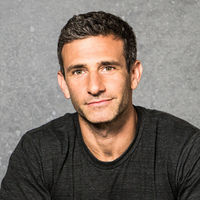
Lux Capital & Santa Fe Institute
Josh Wolfe is a co-founder and managing partner at Lux Capital, and a member of the Board of Trustees with the Santa Fe Institute. In his role at Lux Capital, Josh works to support scientists and entrepreneurs who pursue counter-conventional solutions to the most vexing puzzles of our time in order to lead us into a brighter future. The more ambitious the project, the better—like, say, creating matter from light.
Josh is a Director at Shapeways, 3Scan, Lux Research, Kallyope, and CTRL-labs and helped lead the firm’s investments in Planet, Echodyne, Clarifai and Authorea. He is a founding investor and board member with Bill Gates in Kymeta, making cutting-edge antennas for high-speed global satellite and space communications. Josh is a Westinghouse semi-finalist and published scientist. He previously worked in investment banking at Salomon Smith Barney and in capital markets at Merrill Lynch. In 2008 Josh co-founded and funded Kurion, a contrarian bet in the unlikely business of using advanced robotics and state-of-the-art engineering and chemistry to clean up nuclear waste. It was an unmet, inevitable need with no solution in sight. The company was among the first responders to the Fukushima Daiichi disaster. In February 2016, Veolia acquired Kurion for nearly $400 million—more than 40 times Lux’s total investment.
Josh is a columnist with Forbes and Editor for the Forbes/Wolfe Emerging Tech Report. He has been invited to The White House and Capitol Hill to advise on nanotechnology and emerging technologies, and a lecturer at MIT, Harvard, Yale, Cornell, Columbia and NYU. He is a term member at The Council on Foreign Relations and Chairman of Coney Island Prep charter school, where he grew up in Brooklyn. He graduated from Cornell University with a B.S. in Economics and Finance.
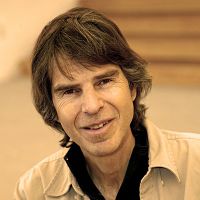
Santa Fe Institute
David Wolpert is an IEEE fellow, is the author of three books and more than 200 papers, has three patents, is an associate editor at more than half a dozen journals, and has received numerous awards. He has more than 17,000 citations in a wide range of fields, including physics, machine learning, game theory, information theory, the therodynamics of computation, and distributed optimization. In particular, his machine learning technique of stacking was instrumental in both winning entries for the Netflix competiton, and his papers on the no free lunch theorems jointly have more than 7,000 citations.
He is a world expert on using nonequilibrium statistical physics to analyze the thermodynamics of computing systems; extending game theory to model humans operating in complex engineered systems; exploiting machine learning to improve optimization; and Monte Carlo methods.
He is currently a member of the resident faculty at the Santa Fe Institute. Previously he was the Ulam Scholar at the Center for Nonlinear Studies at Los Alamos National Laboratory, and before that he was at the NASA Ames Research Center and was a consulting professor at Stanford University, where he formed the Collective Intelligence Group. He has worked at IBM and at a data mining startup, and he is external faculty at numerous international institutions. His degrees in physics are from Princeton University and the University of California.

